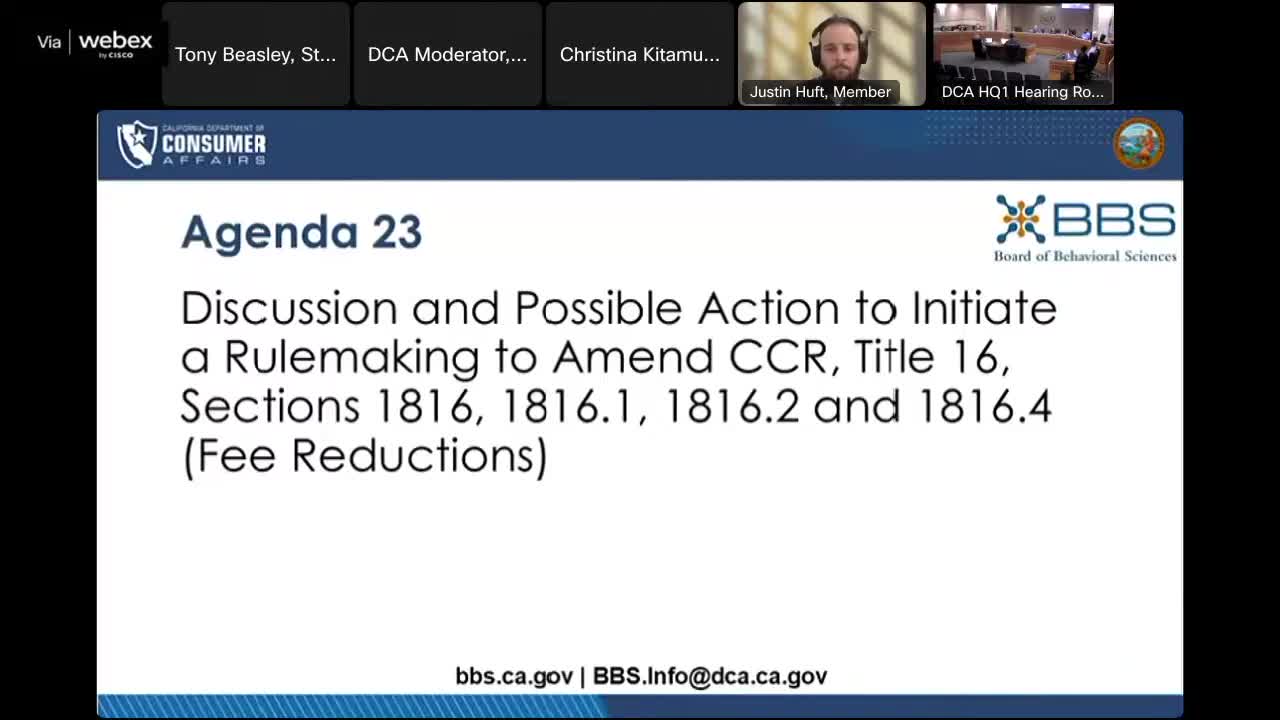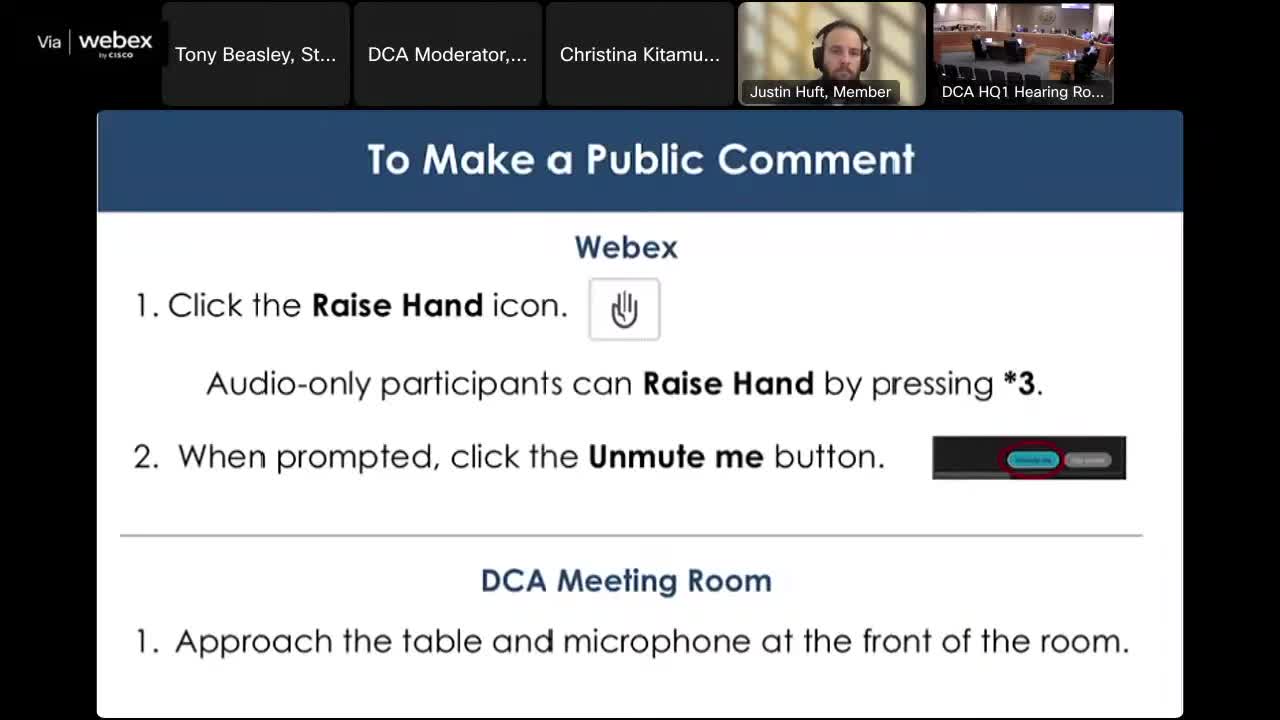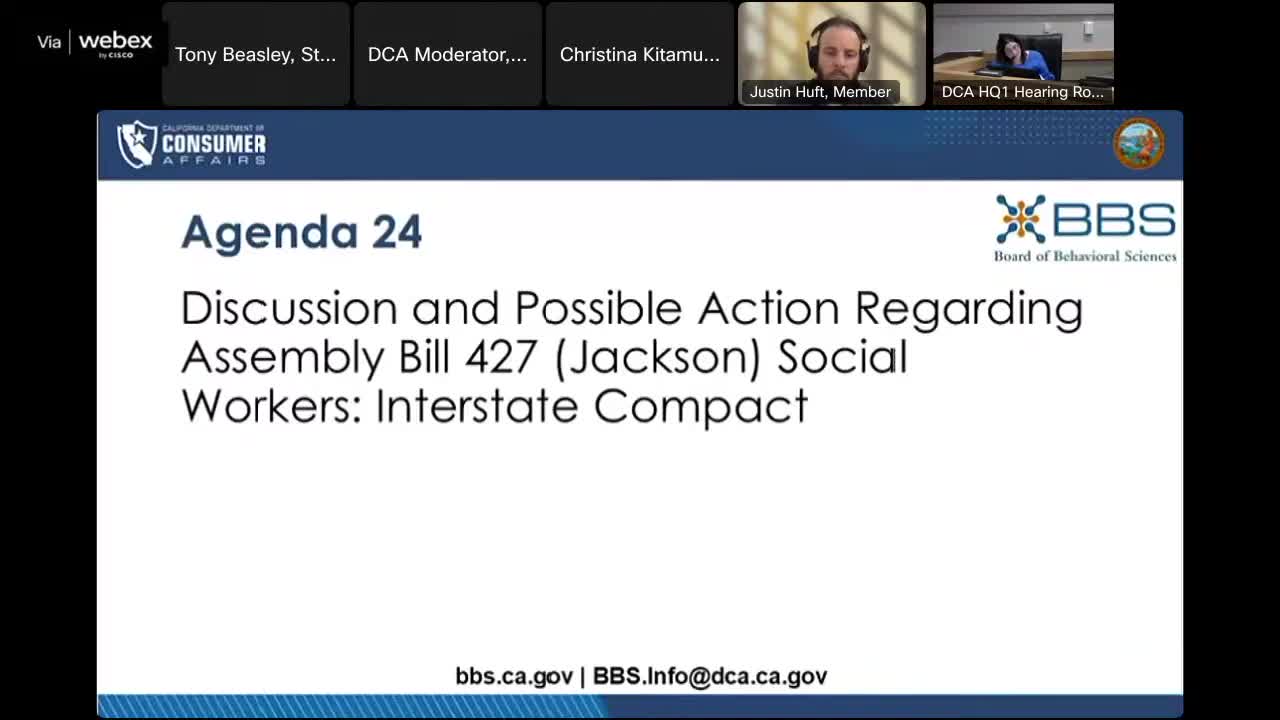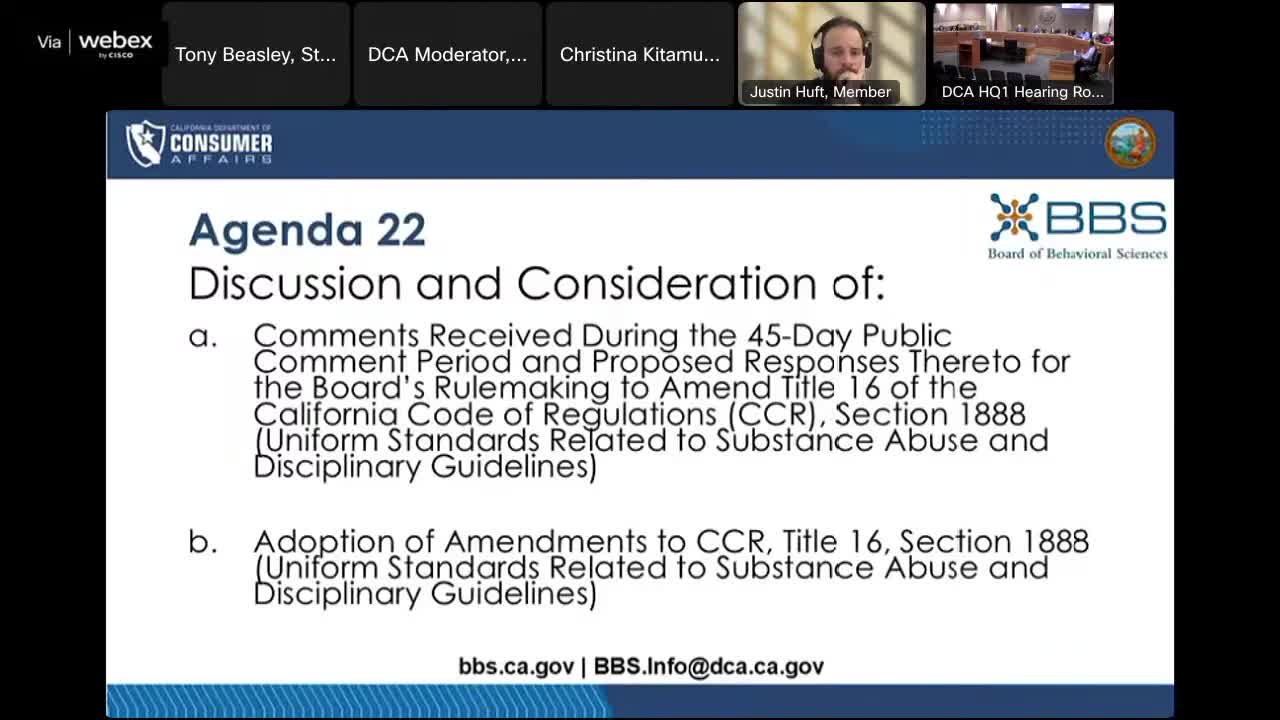Article not found
This article is no longer available. But don't worry—we've gathered other articles that discuss the same topic.

Board opposes Social Work Interstate Compact (AB 427) as written, asks staff to seek amendments

Board weighs action on AI therapy companions; staff to convene listening session and analyze authority

Board initiates rulemaking to cut licensing and exam fees by 50% for four years

